Integration of Educational Technologies to Support Teaching and Learning in Higher Education: Exploring Innovations, Challenges, and Best Practices
A special issue of Education Sciences (ISSN 2227-7102).
Deadline for manuscript submissions: closed (27 May 2024) | Viewed by 1797
Special Issue Editors
Interests: higher education; educational technology; higher education teacher education; computing education; leadership of teaching and learning
Special Issue Information
Dear Colleagues,
This Special Issue offers a forum for researchers interested in research on educational technologies in teaching and studying in higher education. The Issue aims at strengthening and clarifying pedagogical reasoning and theories/frameworks that guide the use and development of educational technologies. We are open to wide definitions of educational technology. We are looking for papers that have a strong pedagogical focus and study teachers’, students’, or higher education institutions’ point of view of utilizing or developing educational technologies. For this Special Issue, we welcome original research on a wide range of topics, but the following ones are of particular interest:
- Papers that discuss teachers’ pedagogical reasoning behind using educational technology in teaching;
- Teachers’ or students’ educational technology competencies and the development of such competencies;
- Institution wide educational technology related initiatives;
- Papers promoting dialogue between theory, pedagogy, and practice.
Theory-informed empirical studies or studies that aim to build or revise a theory, framework, or model are especially welcomed. We hope to receive both qualitative, quantitative, and mixed method studies. Review papers as well as theoretical research papers are also welcomed. Purely descriptive papers will not be accepted. For empirical papers, we ask the authors to include a section on practical implications and recommendations for teaching and learning either on an individual class level or institution level.
This Special Issue has a two-step submission process: first, we invite the authors to submit a 300–400-word structured abstract by the 5th of February 2024, then the guest editors will request full paper submissions based on the accepted abstracts. The deadline for full paper submissions is the 27th of May, 2024.
If you are interested in offering an article for this Special Issue, please write a structured abstract (300–400 words) that includes:
- Tentative title;
- Aims of the study;
- Background and theoretical framework;
- Research questions;
- Data and research methods;
- Tentative results and conclusions;
- Tentative practical implications on teaching and learning;
- Keywords (approximately 5–8).
We look forward to receiving your contributions.
Dr. Päivi Kinnunen
Dr. Veera Kallunki
Guest Editors
Manuscript Submission Information
Manuscripts should be submitted online at www.mdpi.com by registering and logging in to this website. Once you are registered, click here to go to the submission form. Manuscripts can be submitted until the deadline. All submissions that pass pre-check are peer-reviewed. Accepted papers will be published continuously in the journal (as soon as accepted) and will be listed together on the special issue website. Research articles, review articles as well as short communications are invited. For planned papers, a title and short abstract (about 100 words) can be sent to the Editorial Office for announcement on this website.
Submitted manuscripts should not have been published previously, nor be under consideration for publication elsewhere (except conference proceedings papers). All manuscripts are thoroughly refereed through a double-blind peer-review process. A guide for authors and other relevant information for submission of manuscripts is available on the Instructions for Authors page. Education Sciences is an international peer-reviewed open access monthly journal published by MDPI.
Please visit the Instructions for Authors page before submitting a manuscript. The Article Processing Charge (APC) for publication in this open access journal is 1800 CHF (Swiss Francs). Submitted papers should be well formatted and use good English. Authors may use MDPI's English editing service prior to publication or during author revisions.
Keywords
- educational technology
- higher education
- pedagogical reasoning
- educational technology competencies
- dialogue between theory, pedagogy, and practice
Benefits of Publishing in a Special Issue
- Ease of navigation: Grouping papers by topic helps scholars navigate broad scope journals more efficiently.
- Greater discoverability: Special Issues support the reach and impact of scientific research. Articles in Special Issues are more discoverable and cited more frequently.
- Expansion of research network: Special Issues facilitate connections among authors, fostering scientific collaborations.
- External promotion: Articles in Special Issues are often promoted through the journal's social media, increasing their visibility.
- e-Book format: Special Issues with more than 10 articles can be published as dedicated e-books, ensuring wide and rapid dissemination.
Further information on MDPI's Special Issue polices can be found here.






